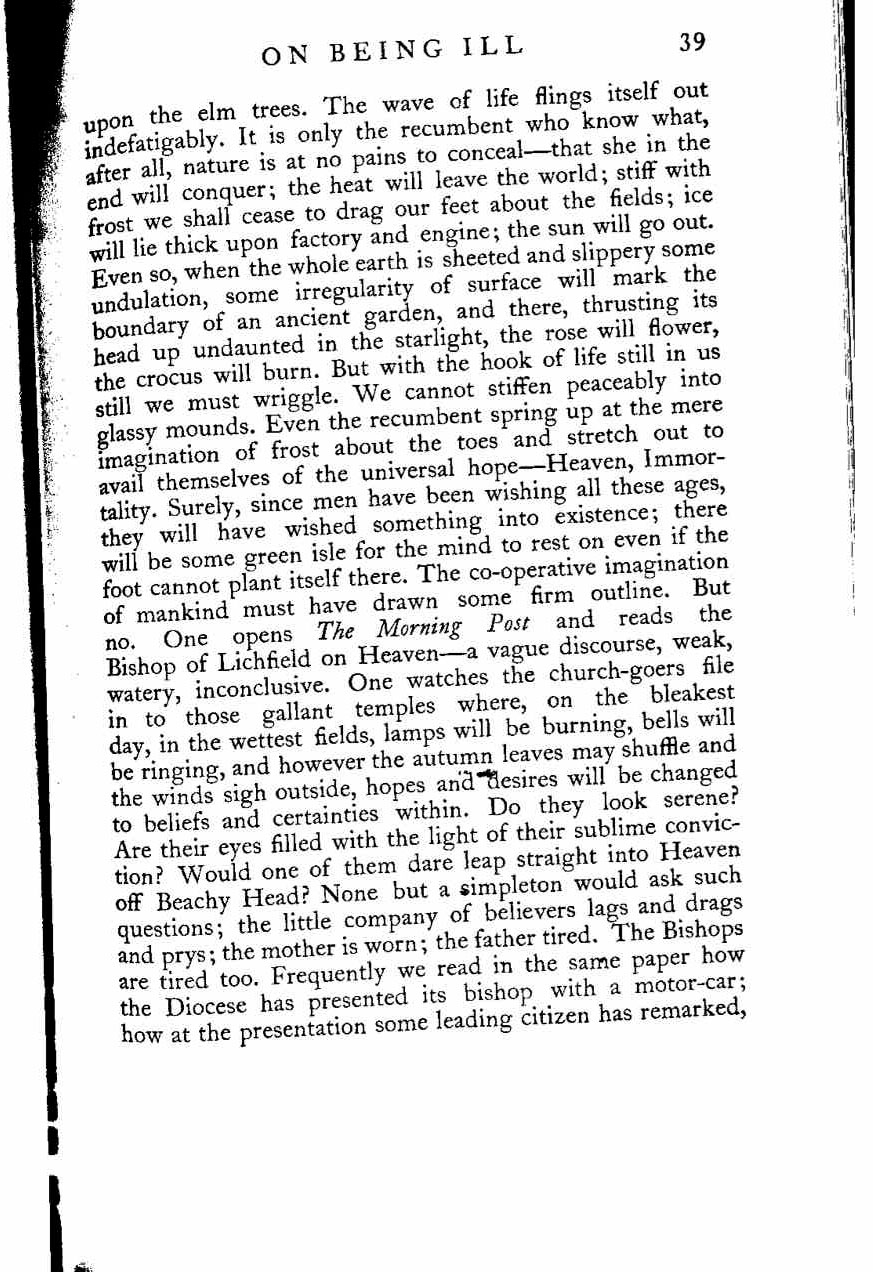
upon the elm trees. The wave of life flings itself out
indefatigably. It is only the recumbent who know what,
after all, nature is at no pains to conceal—that she in the
end will conquer; the heat will leave the world; stiff with
frost we shall cease to drag our feet about the fields; ice
will lie thick upon factory and engine; the sun will go out.
Even so, when the whole earth is sheeted and slippery some
undulation, some irregularity of surface will mark the
boundary of an ancient garden, and there, thrusting its
head up undaunted in the starlight, the rose will flower,
the crocus will burn. But with the hook of life still in us
still we must wriggle. We cannot stiffen peaceably into
glassy mounds. Even the recumbent spring up at the mere
imagination of frost about the toes and stretch out to
avail themselves of the universal hope—Heaven, Immor-
tality. Surely, since men have been wishing all these ages,
they will have wished something into existence; there
will be some green isle for the mind to rest on even if the
foot cannot plant itself there. The co-operative imagination
of mankind must have drawn some firm outline. But
no. One opens the Morning Post and reads the
Bishop of Lichfield on Heaven—a vague discourse, weak,
watery, inconclusive. One watches the church-goers file
in to those gallant temples where, on the bleakest
day, in the wettest fields, lamps will be burning, bells will
be ringing, and however the autumn leaves may shuffle and
the winds sigh outside, hopes and desires will be changed
to beliefs and certainties within. Do they look serene?
Are their eyes filled with the light of their sublime convic-
tion? Would one of them dare leap straight into Heaven
off Beachy Head? None but a simpleton would ask such
questions; the little company of believers lags and drags
and prys; the mother is worn; the father tired. The Bishops
are tired too. Frequently we read in the same paper how
the Diocese has presented its bishop with a motor-car;
how at the presentation some leading citizen has remarked,






